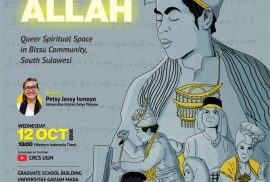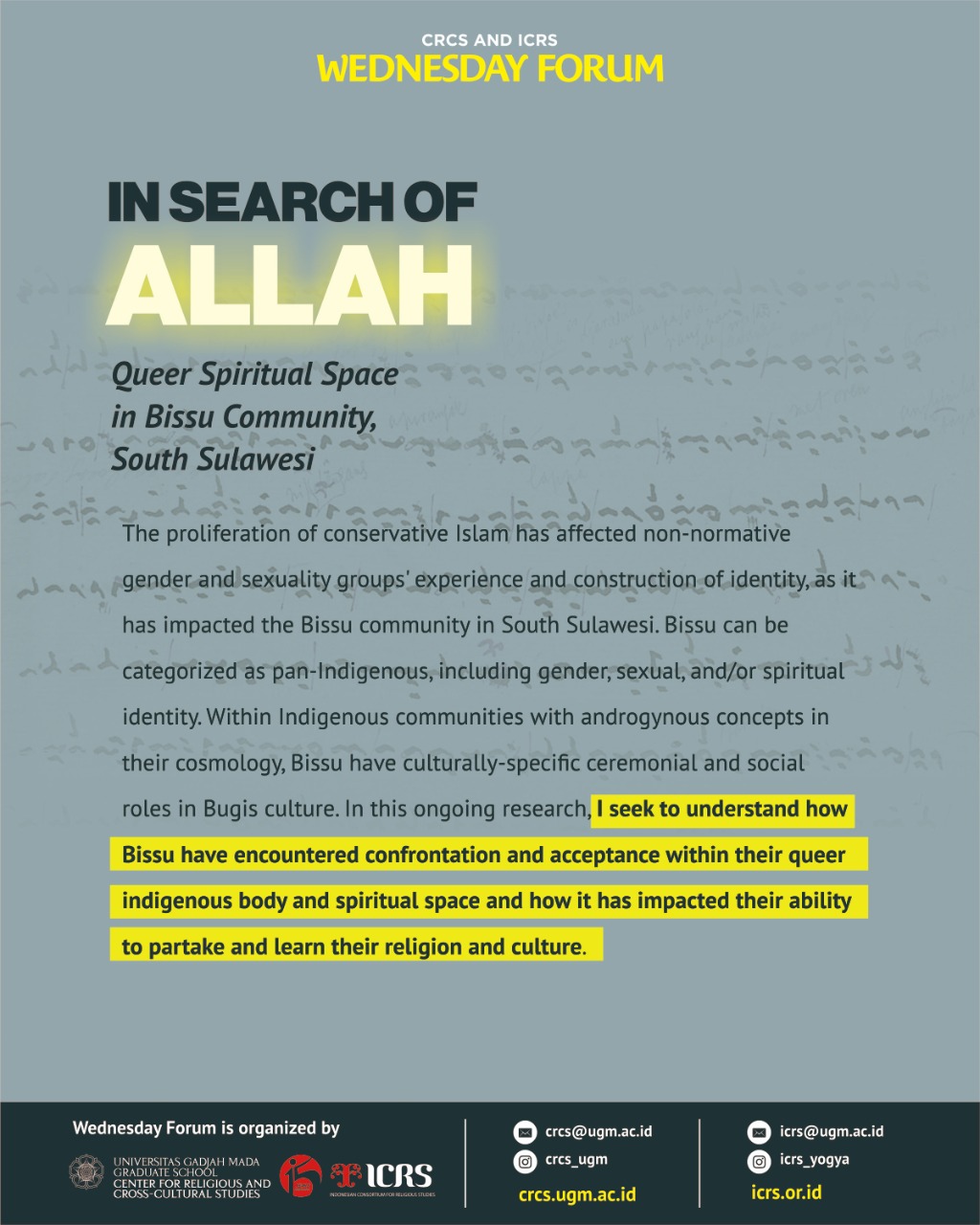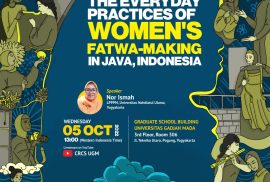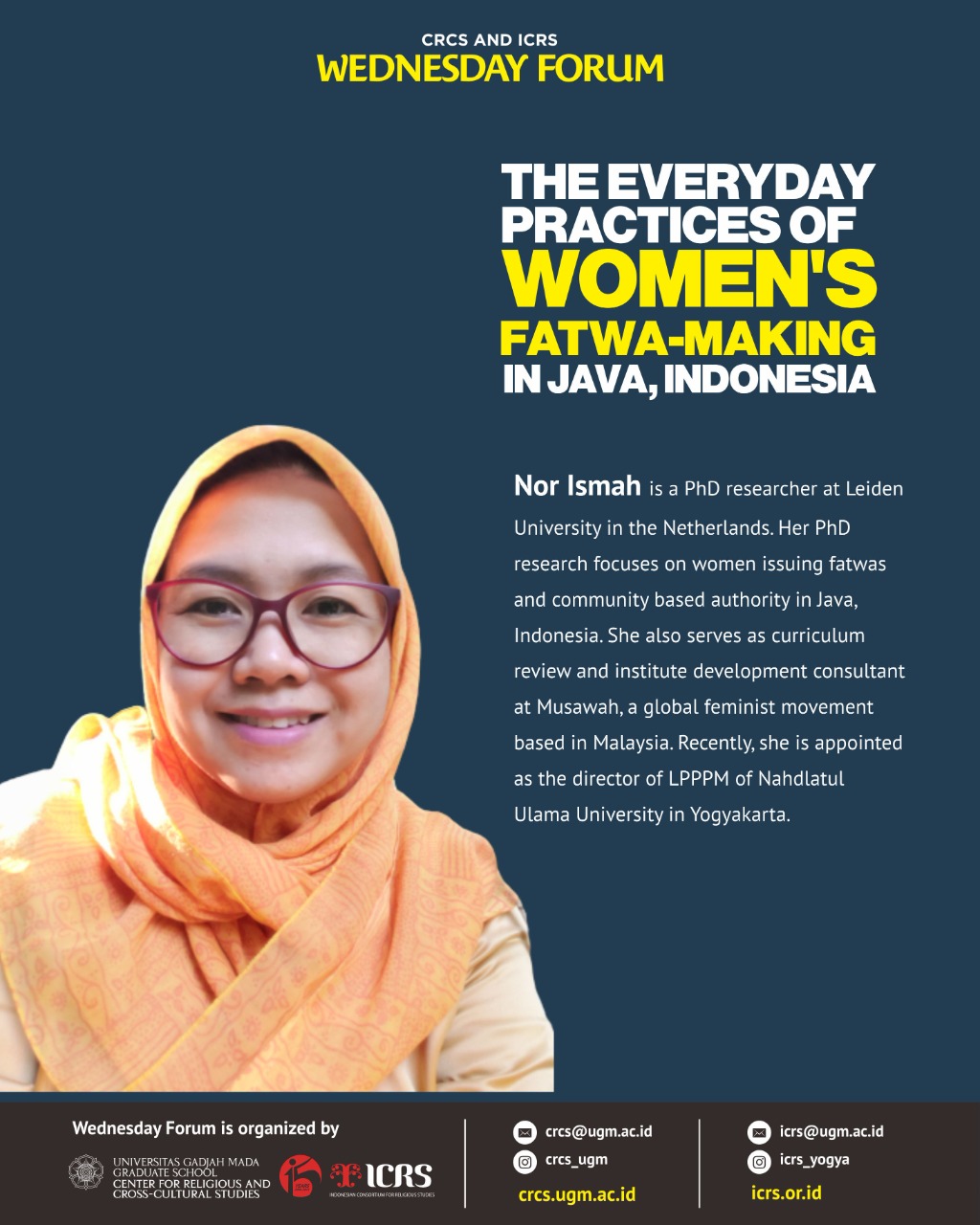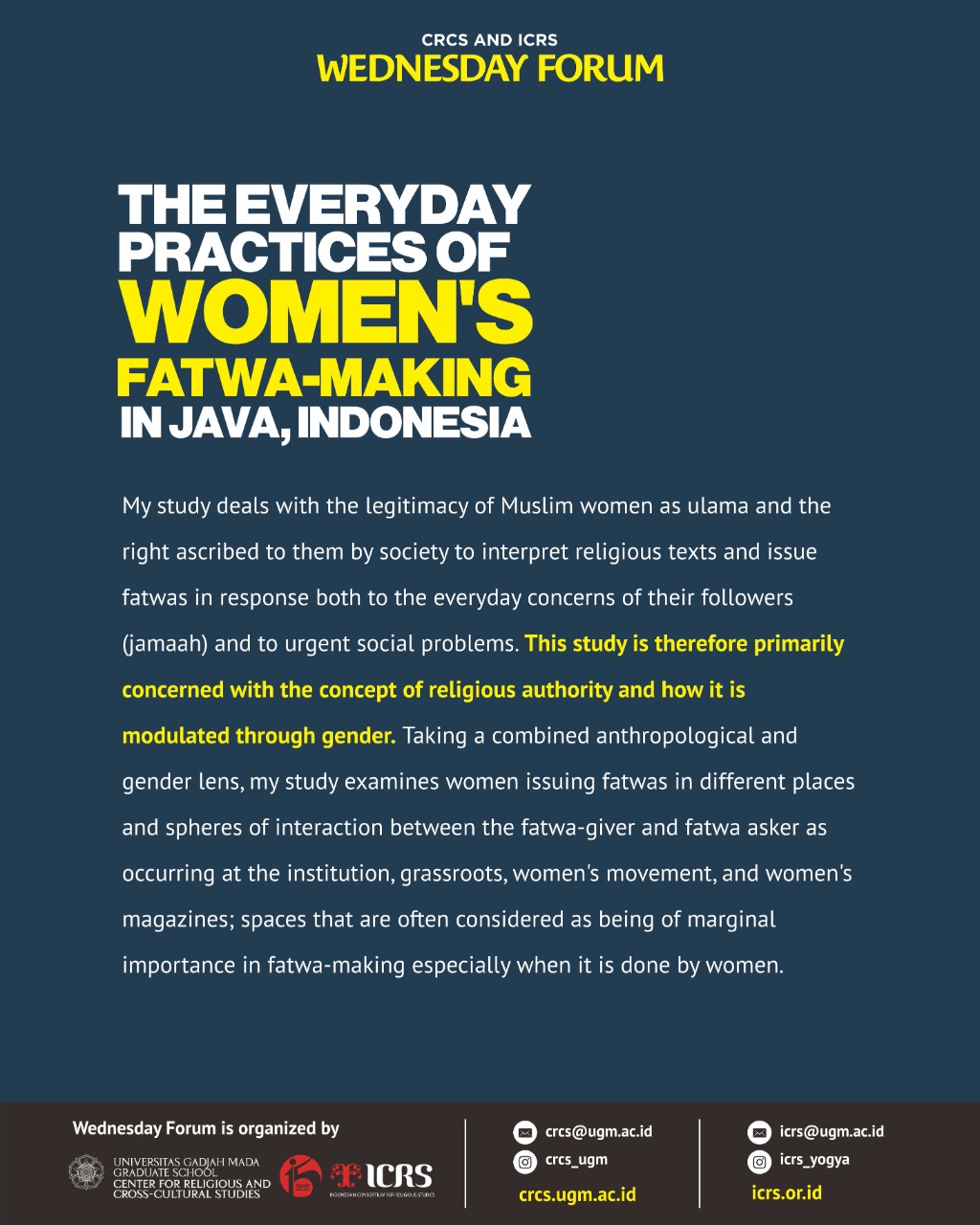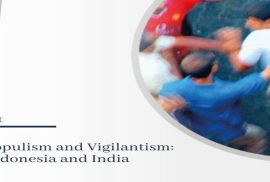Dear friends and colleagues,
We are glad to announce the opening of admission for students to apply for full time Ph.D. program for the 2nd Semester of 2022-2023 academic year. You may visit our website to get more information about the admission process.
Written by Haris Fatwa Dinal Maula – CRCS UGM Student
Translation by Maurisa Zinira – ICRS Doctoral Student
As a social norm that is intended to apply universally, the existence of Human Rights (HAM) is an inseparable part of the discourse and life of Muslims in today’s world. Formally, Muslim countries that are part of the Organization of Islamic Cooperation (OIC) affirm the existence of human rights values through the contents of the opening of the OIC Guidelines Charter in 1972. This commitment is also shown by the number of Muslim countries that ratified the International Covenant on Civil and Political Rights (ICCPR) and the International Covenant on Economic, Social, and Cultural Rights (ICSER) which was ratified in 1966. However, this formal acceptance did not necessarily make the human rights discourse accepted smoothly by the Muslim world. One of the crucial points in the Universal Declaration of Human Rights (UDHR) which is being debated is about freedom of religion or belief (FoRB). On the other hand, the implementation and enforcement of human rights in Muslim countries is also still weak and is often in the spotlight.
Written by Krisharyanto Umbu Deta – CRCS UGM Student
Translated by Athanasia Safitri – ICRS Doctoral Student
Freedom of Religion or Belief (FoRB), as part of the Human Rights (HR) value, is often seen as an advocacy tool oriented for the minority groups. However, this view tends to depreciate FoRB significance for a broader community, not just any particular group. In the Public Lecture International Conference on Religion and Human Rights, July 18, 2022, entitled “The Contribution of Freedom of Religion or Belief to Societal Peace”, Heiner Bielefeldt – who had served as the United Nations Special Rapporteur on Freedom of Religion or Belief 2010-2016 – raised one interesting perspective on FoRB which has a potential contribution in bringing societal peace into life. This point of view is vital to review the interconnection between issues of peace and freedom which often do not go hand in hand. In the name of peace, harmony and order, violations of human rights and freedoms of the citizens may occur. For this reason, the paper re-examines Bielefeldt’s main ideas regarding the contribution of the FoRB to peace-building projects that are oriented towards genuine peace that is “noisy” instead of “tranquil”.
Written by Maurisa Zinira
Right-wing populism continues to show signs in various countries. By adhering to claims of privilege as the dominant group, they further their politics by mobilizing hatred against minorities. They don’t even hesitate to use vigilante methods to set up domination. Using the extra-legal mechanism for politics, right-wing populism perpetuates the chain of violence that threatens democracy. The micro picture of the relationship between right-wing populism and vigilantism is discussed remarkably in the 8th Reading in Social Science (RISOS) by reviewing Sana Jafrey’s article entitled “Right Wing Populism and Vigilante Violence in Indonesia” that was published in the journal Studies in Comparative International Development (2021) 56:223–249. The forum was held on 29 August 2022 by inviting two researchers in the same study, Laurens Bakker from the University of Amsterdam and Iqbal Ahnaf from Center for Religious and Cross-Cultural Studies, UGM.
Written by Athanasia Safitri
History has written that religion and its religious traditions, no matter how personal and sacred they may be, have involved the active participation of a community. Considering the variety of religious traditions, apart from the six acknowledged religions in Indonesia, there have also been many different teachings and rituals among the indigenous beliefs which are still practiced by Indonesian communities. This leads to potential arguments, inevitable tensions, and even religious conflicts at times. We understand that, occasionally, disagreement does not only happen between different religions but also within the religion itself related to its denominations. Therefore, when we talk about religious engagements, we cannot help but also include both interreligious and intra-religious relations since these two affect one another.





